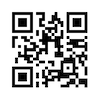The Church is Moving On(line) - Anita Cloete
The following blog post is an edited excerpt from an essay appearing in the Network’s eBook Project entitled Digital Ecclesiology: A Global Conversation. The eBook includes 11 essay where authors reflect on the realities of the church revealed through moving from offline to online worship during a time of global pandemic. The eBook is available for FREE download at: https://oaktrust.library.tamu.edu/handle/1969.1/188698.
The Church is Moving On(line)
Anita Cloete
When Distancing Becomes the Way of Staying Alive in a Connected World
Lockdown, a word that many of us never really knew or thought about before, has become the primary way in which governments around the world respond to the global epidemic of the coronavirus.
The prohibition of religious gatherings and practices may be viewed as minor compared to the economic damage caused to already weak and fragile economies, especially in South Africa. This may be a valid view, however, religion still plays a significant role in people’s lives, especially in times of crisis. The prohibition of these gatherings left many religious leaders with a real challenge in a time when people need encouragement and hope.
Give Me that Online Religion because It Is Good Enough for Me
Since the start of the lockdown in South Africa, many religious leaders found it necessary to provide comfort to their flocks by broadcasting their sermons on Facebook and sending messages to church members using WhatsApp. Some people noted that they love the idea that they can listen to as many sermons as possible and do church hopping. I interpret this to mean changing from platform to platform to figure out which online service/sermon is more interesting and entertaining. Many seem to view these media platforms as merely tools that can be used to replicate what used to be done offline, online.
Keeping the Nature of Mediums in Mind when Moving Online
Different forms of mediums have a certain kind of logic or way of operating. For instance, if you use Twitter, you must make a short statement with impact. Similarly, Facebook and WhatsApp are platforms that are associated with short, compact messages; therefore, it is not possible or wise to try to replicate normal Sunday services/sermons via these platforms. How content is presented online is of importance—it should be well prepared, focused, and combined with other elements like a beautiful background or music.
Beware of Unintended Outcomes when Holding Church Services Online
When audiences are confronted with choices of which services to follow, that choice may be influenced by several factors including those mentioned earlier, like the aesthetic qualities of the presentation. This implies that some congregations may gain online members who could leave again at any time, while others may lose members.
Rethinking Community: Being Alone Together
For many members, congregational gatherings are the expression of communion with other believers. There is something special about physical togetherness, but the perception that online community is not real is surely challenged at this point when it becomes not a default option but the only viable one—to be alone together as the body of Christ.
Online platforms are centered around the individual, and the communities created differ from offline communities where the choices of individuals are limited by time and space. Moving online may enforce this scattered and more individualistic shape of communities, which could impact offline communities that are regulated and determined by different factors. Communities built through social media platforms like Facebook create and reinforce “networked individualism” that is associated with freedom of choice and increased mobility (Campbell, 2012, p. 683). The choice and mobility that are available to audiences also imply mobility between different denominations and religious traditions, constructing a more individualized custom-made kind of spirituality.
Preaching and/as Timing
In many religious traditions, preaching is a central aspect of being church. Therefore, the pulpit, which is normally occupied by one person, is important, and especially what is said from the pulpit. In a time like this, it becomes even more important to discern what message this specific time requires from the pulpit. Cilliers (2019) describes the connection between God’s grace that could/should be fulfilled in a specific time with the word Kairos: “Timely preachers know and acknowledge the Kairos when it comes… these preachers help kindle the Kairos. Herein lies the brilliance of the wisdom of preaching” (p. 24). A timely word is indeed needed to bring God’s graceful word to people. To be a timely preacher, discernment is prerequisite and so are hermeneutical skills to time the text, connecting the text and the homiletical situation (Cilliers, 2019, p. 189).
What Is Essential about Being Church in Time of Crisis?
This is a time when the church should have a message but also become the message. Therefore, this time also provides an opportunity to ask what is essential for being church, besides bringing a timely word. Faleni (2020) formulates the challenge the church is facing now as the vital part of being church, namely, the relationship with God that comes from the heart and has little to do with the performance-driven aspect of being church. This crisis presents the church in all its forms with a creative and unique opportunity to rethink and revisit her identity and expression thereof under different circumstances.
Anita Cloete is a lecturer and associate professor in the department of Practical Theology and Missiology, Faculty of Theology, Stellenbosch University, South Africa. Her research areas are theology and popular culture, youth culture, and religion and media.
Sources
Campbell, H. A. (2020). What religious groups need to consider when moving church online. In H.A. Campbell (Ed.), The distanced church: Reflections on doing church online (pp. 51-54). College Station, TX: Digital Religion Publications.
Campbell, H. A. (2012). Religion and the internet: A microcosm for studying internet trends and implications. New Media & Society, 15(5), 680-694.
Cloete, A. (2015). Living in a digital culture: The need for theological reflection. HTS Theological Studies, 71(2), 1-7.
Hjarvard S. (2015). Mediatization and the changing authority of religion. Media, Culture & Society, 20, 1-10.
Wepener, C. (2020, May 5). Religions get tech savvy: Epidemic speeds up use of technology during lockdown and social distancing. The Star.
Cilliers, J. (2019). Timing grace: Reflections on the temporality of preaching. Stellenbosch, ZA: Sun Press.
Faleni, M. (2020, April 29). Role of the church during time of crisis, is different but still vital. DispacthLive. Retrieved from https://www.dispatchlive.co.za/news/opinion/2020-04-29-role-of-church-du....





